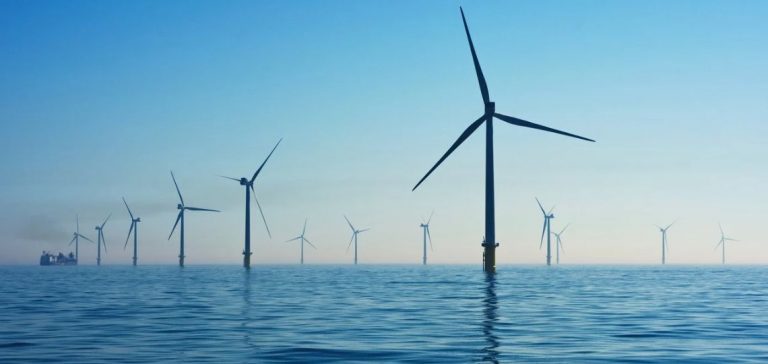Mainstream Renewable Power (“Mainstream”) and Ocean Winds have announced that they have secured a Transmission Service Agreement (Transmission Service Agreement, TSA) with Korea Electric Power Corporation (KEPCO). This agreement covers the injection of 1,125 MW of clean energy into South Korea’s national grid.
The project, named KF Wind, is divided into two phases: East Blue Power (375 MW) and the second phase, KF Wind (750 MW). The agreement with KEPCO ensures the project’s connection to the South Korean electrical grid via the interconnection point located at the Shinonsan onshore station in Ulsan.
Development and Progress of the Project
The KF Wind floating wind farm is being developed in the Ulsan region, where obtaining the Environmental Impact Assessment from the Ministry of Environment, Trade and Industry has been a key milestone in its progress. The 1,125 MW infrastructure is one of the first large-scale initiatives of its kind in South Korea.
This grid connection will enable the efficient transmission of the clean energy generated by the installation, thereby ensuring a stable and reliable power supply to the national electrical grid. Once completed, the project will be integrated into the world’s largest floating wind cluster, with a total estimated capacity of 6 GW.
Contributions to National Decarbonization
The KF Wind offshore floating wind farm is a strategic element in South Korea’s carbon neutrality goals, aiming for a significant reduction in greenhouse gas emissions by 2050. With the rise of these projects, the country seeks to diversify its energy mix while increasing the share of renewable energies.
Strategic Partnerships and International Expansion
The initiative is supported by Ocean Winds, a joint venture between EDP Renewables and Engie, specialized in developing offshore wind farms worldwide. This partnership with Mainstream Renewable Power aligns with the strategy to deploy cutting-edge floating wind technologies.
The installations in South Korea are expected to serve as a reference base for similar projects in other regions of Asia, where the potential for offshore wind is considerable. South Korea aims to become a technological and industrial hub for floating wind, fostering innovation and investments in this field.
The 1.1 GW KF Wind project also represents an opportunity for local companies to enhance their technological capacity and participate in the global supply chain of the sector.






















